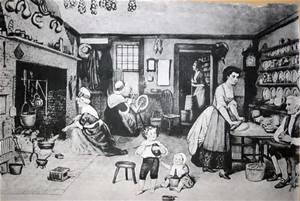There has been a fascinating and, I think, poorly understood evolution of parenting and childhood since the earliest colonial days of the American experience.
Paula S. Fass
writes about it in
The End of American Childhood: A History of Parenting from Life on the Frontier to the Managed Child (Princeton University Press, 2006). A
New York Times reviewer points out that the narrative gets a bit lost in the most recent history of “helicopter parents” who are overwhelmingly focused on controlling and protecting their children so they grow up to great lives with success and affluence and notable careers and….cue the all-important play date….make sure Joshua can get into Yale….

It’s intriguing to me to understand that colonial parents rather consciously moved away from the Old World view of children as economic resources, and adopted a more relaxed willingness to give their kids some degree of independence and flexibility in their paths to adult life. Of course, kids were put to work at a young age, but parents gave them opportunity and approval to feel engaged in the work and be open to wider horizons and innovation. Europeans thought that American children were “rude, unmannerly and bold.”
There were many circumstantial differences at work. In the colonies and early United States, there was an abundance of cheap land and a shortage of labor, and thus, pervasive opportunities for personal success. The European tradition of primogeniture was largely absent: on our side of the Atlantic, a father’s land and estate did not pass automatically to the firstborn son, so the more egalitarian inheritance practices boosted the life prospects of most children.
Of course, there’s another side to the childhood narrative: slave children in America were often treated as economic units by their owners. That’s a disgusting reality in our history.
Copyright © Richard Carl Subber 2016 All rights reserved.






